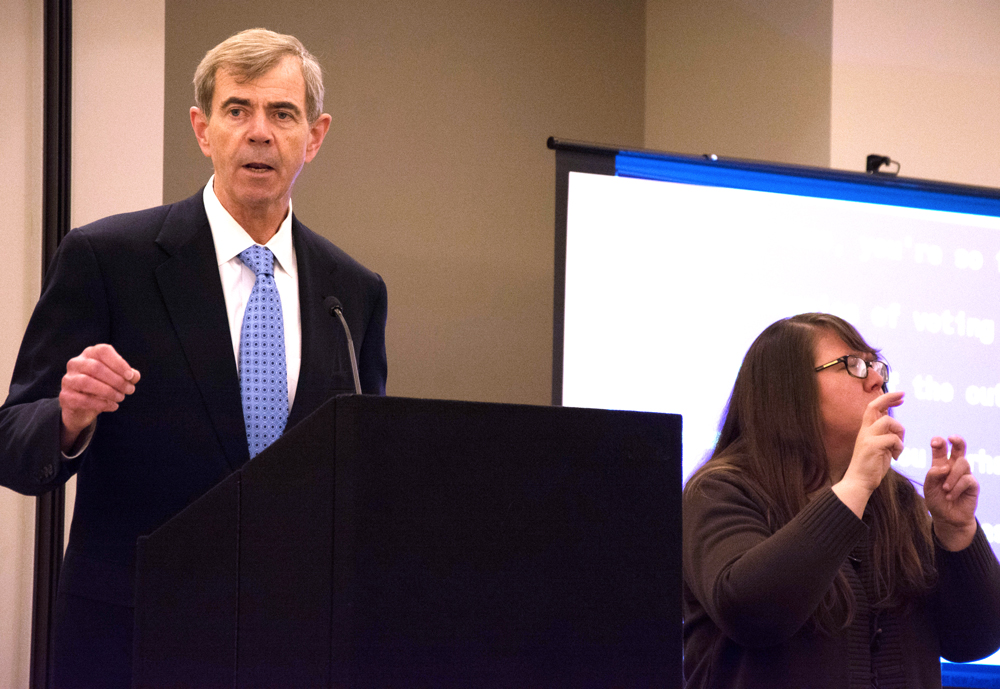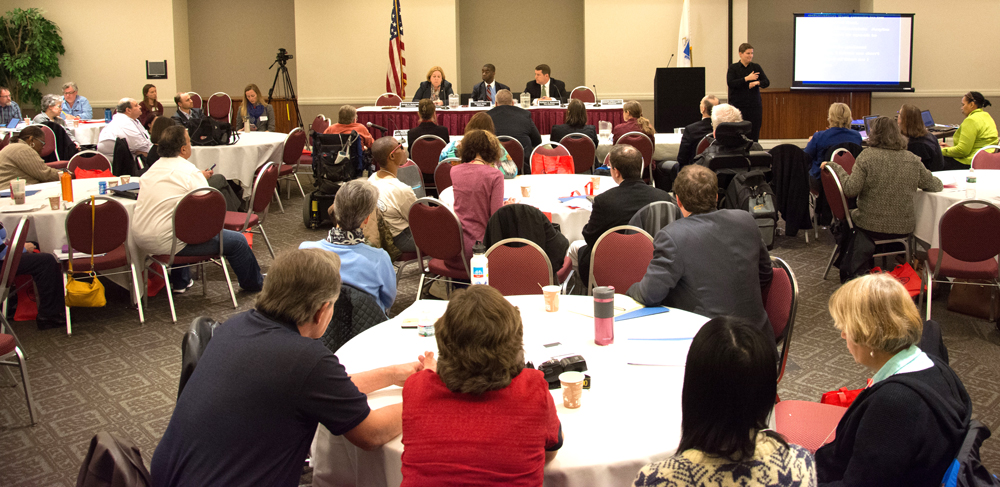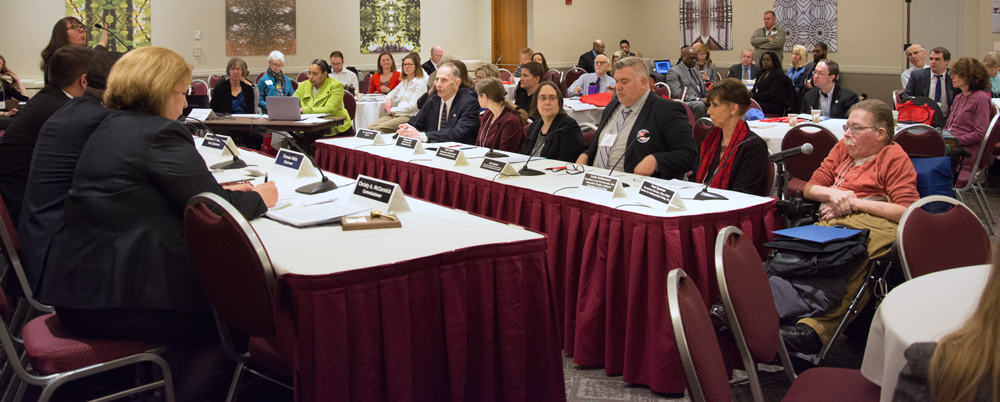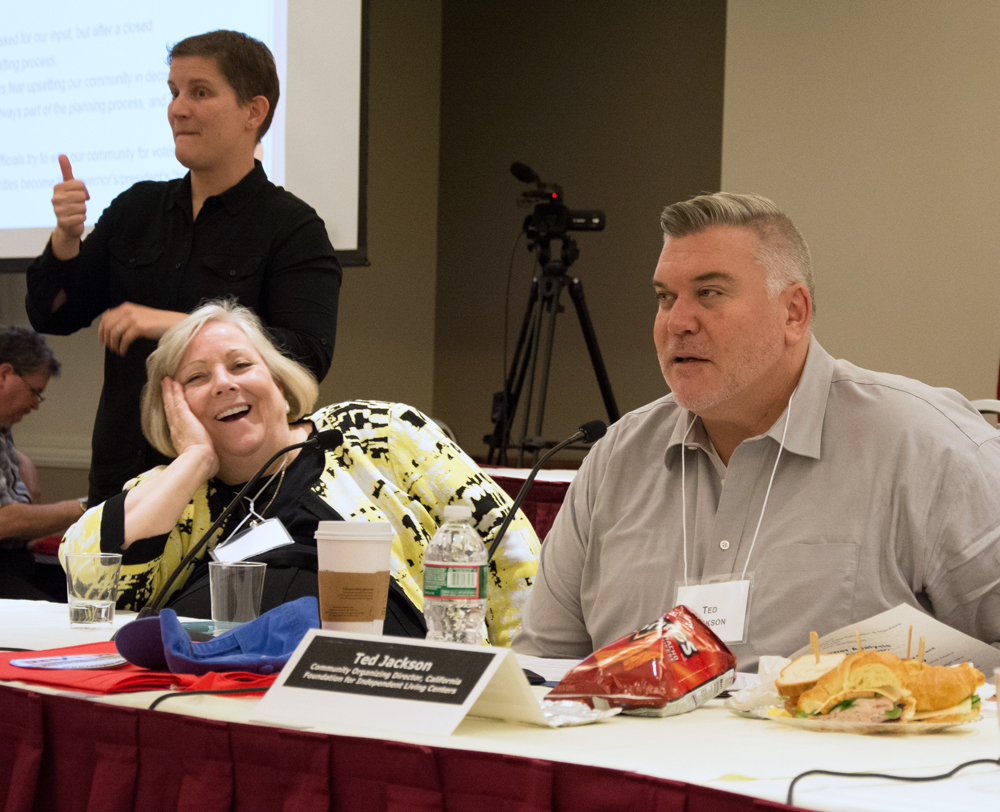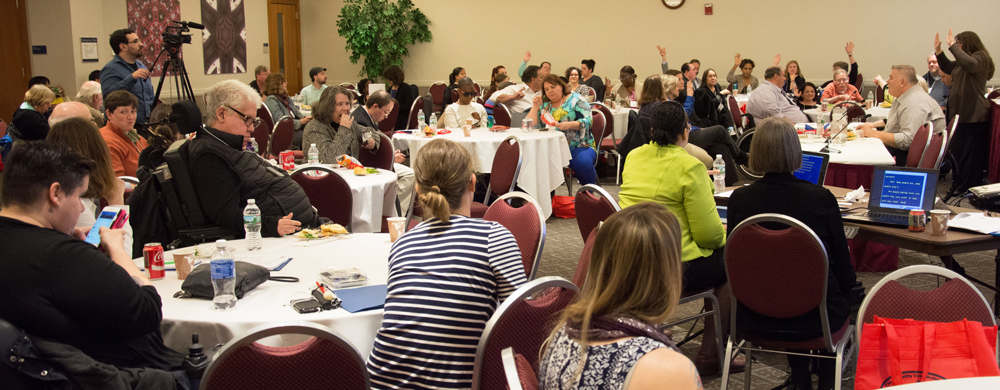California Disability Voter Guide Released
5.9 Million Eligible Voters with a Disability in California
Washington, June 1 – Next week’s California primary is being called the final battleground for the Democratic primary. While Hillary Clinton is expected to secure the nomination in New Jersey, which also goes to the polls on June 7, California has become an unexpectedly tight race between her and Bernie Sanders, who has pledged to stay in the race until the Democratic convention in July.
California has 5.9 million eligible voters with a disability, and as it is a race to watch, RespectAbility is sharing its California Disability Voter Guide. California’s voters are looking to know where the candidates stand on important disability issues in order to increase opportunities for competitive, integrated employment for people with disabilities.
“Closing the turnout gap is a high priority for voters with disabilities,” Ted Jackson, California Foundation for Independent Living Centers’ Community Organizing Director, said. “It will demonstrate that we are building electoral power and hold our elected officials accountable to the strength of our voting bloc.”
The #PwDsVote 2016 Campaign Questionnaire was designed for people with disabilities (PwDs) and those who love them to know where candidates stand on the issues. The questionnaire asked all of the presidential candidates on both sides of the aisle to comment on 16 disability questions. Former Sec. of State Hillary Clinton and Sen. Bernie Sanders responded by addressing all of the questions. They each have significantly different views on the issues.
Despite numerous requests in person and by phone and email, presumptive Republican nominee Donald Trump has not yet filled out the questionnaire. However, several Republican candidates who have since dropped out of the race did respond to the questionnaire including former Gov. Jeb Bush, who addressed all of the questions, and Dr. Ben Carson, Gov. Chris Christie and Gov. John Kasich, all of whom filled out parts of the questionnaire.
Fully one-out-of-five voters have a disability, and 52 percent of likely voters have a loved one with a disability. Only 34 percent of working-age Americans with disabilities have jobs, despite the fact that the vast majority want to work. More than 11 million working age people with disabilities are now living on government benefits in our country.
RespectAbility President Jennifer Laszlo Mizrahi said, “Our community is looking for jobs so we can achieve the American dream, just like anyone else. It is vital for us to know where the candidates stand economic, stigma, education, safety, transportation, housing, healthcare, foreign affairs and other issues. The candidates have hugely different ideas about how to deal with the issues. Thus, it’s extremely important to read their full answers so you can understand their vast differences.”
Currently, California ranks 34th out of the 50 states in regards to the labor force participation rate of people with disabilities, which currently stands at just 33.3 percent (compared to 71 percent of people without disabilities). In other states, such as the Dakotas, 50 percent of their populations with a disability are successfully employed. The ranking table for all fifty states can be seen here.
RespectAbility has submitted comments for all 50 state’s drafts of the Unified Plan as required under Section 102 of The Workforce Innovation and Opportunity Act (WIOA). Given the size of California’s population and economy, the Golden State should be able to attain higher values, and WIOA offers the opportunity to do so.
There are more than 115,000 youth with disabilities in California, and each year more than a quarter of them will age out of school into an uncertain future. Alternatively, many of the state’s baby boomers will be aging out of the workforce, leaving many positions open and unfilled. This change in demographics, paired with the increasing demand in sectors such as accommodation and agriculture create even more openings in the work force that need to be filled.
California has the opportunity to lead by example by including more people with disabilities in the workforce thanks to WIOA. As the largest state in terms of population and economy, many other U.S. states look to California for guidance. WIOA gives California the opportunity to set the stage for all other participants and show that people with disabilities can be a valuable asset to any employer.
However, the gap in the labor force participation between people with and without disabilities is 38.9 percent. This lack of employment for people with disabilities creates poverty, powerlessness and poor health. Polls and studies show that people with disabilities want the opportunity to have the dignity and independence that jobs provide.
America has 1.2 million youth with disabilities, between the ages of 16 and 20. Each year 300,000 of them age into what should be the workforce, but stigmas and lack of knowledge about the capabilities of people with disabilities means that most do not find employers willing to hire them. Young adults with disabilities in all of these states are hoping to find work. They have high expectations and deserve the opportunity to achieve the American dream. Young people with disabilities may simply need some thoughtful help to transition into the workforce. See data on all 50 states here: State Data.
RespectAbility will continue to urge Trump to submit his ideas for the disability community. When he does so, we will update the guide. The questionnaire is being distributed to more than 50,000 people who care about disability issues, more than ten thousand of whom live in the early primary states and the heads of more than 100 national disability organizations, many of whom will share with their own lists. RespectAbility also has placed online ads sharing the questionnaire.


